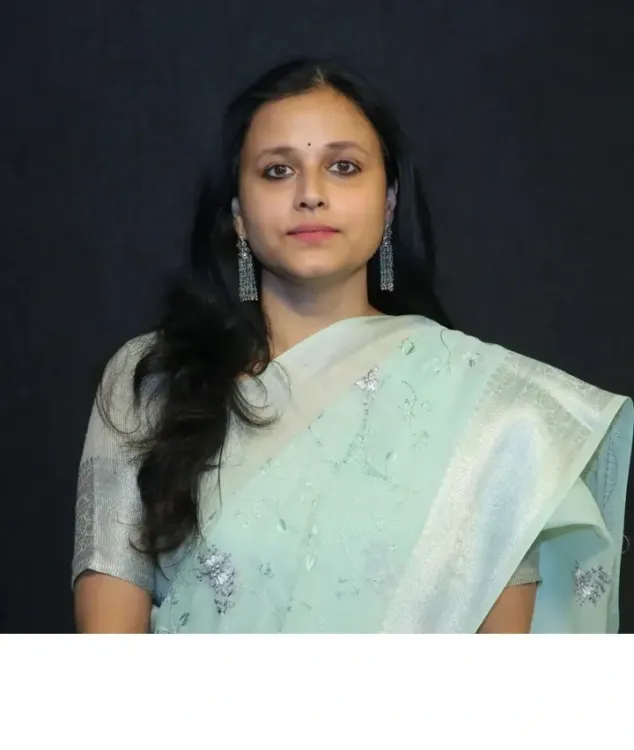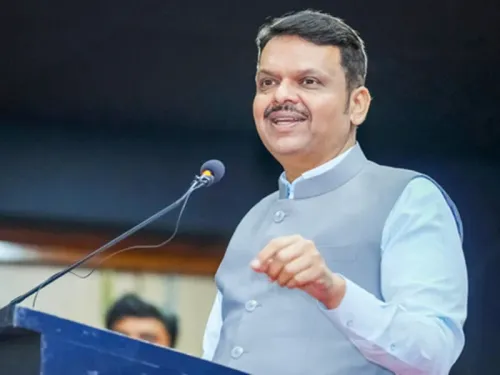How Did JGU Dean Become the First Indian on Cambridge International’s SHEAC?

Synopsis
Key Takeaways
- Prof (Dr) Upasana Mahanta makes history as the first Indian on SHEAC.
- SHEAC is a global platform for shaping higher education.
- India gains a vital voice in international academic discussions.
- JGU emphasizes inclusivity and accessibility in education.
- This appointment highlights the importance of diverse perspectives in shaping educational policies.
Sonipat (Haryana), May 19 (NationPress) In a groundbreaking achievement for Indian academia, Prof (Dr) Upasana Mahanta, who serves as the Dean of Admissions and Outreach at O.P. Jindal Global University (JGU), has made history by being appointed as the first Indian member of the Strategic Higher Education Advisory Council (SHEAC) established by Cambridge International.
This marks the inaugural representation of India on this esteemed global platform.
The SHEAC convenes prominent leaders in admissions and student recruitment from some of the world’s most prestigious institutions, including University of Oxford, MIT, University of Cambridge, University of Toronto, and Monash University. The Council plays a crucial role in guiding the recognition, relevance, and future trajectory of Cambridge qualifications worldwide, ensuring they stay aligned with the evolving landscape of higher education.
Prof Mahanta’s appointment is a remarkable acknowledgment of India’s escalating leadership in global academic discussions. An Indian perspective at SHEAC introduces essential representation from the Global South in pivotal conversations influencing higher education. Her expertise and leadership will amplify India’s influence on international forums like Cambridge. This unprecedented appointment for an Indian academic is poised to enhance the global acknowledgment of the nation’s educational accomplishments.
Reflecting on her new role, Prof Mahanta stated: “It’s an incredible honour to join this global consortium of educators and policy leaders. I view this as an opportunity to represent not only JGU but also the aspirations of students and educators across India and the Global South. The educational landscape is evolving, and it is essential that this evolution is steered by diverse, grounded, and globally aware voices.”
In response to the announcement, Prof (Dr) C. Raj Kumar, Founding Vice Chancellor of JGU, remarked, “This is a proud moment for JGU and India. Prof Upasana Mahanta’s appointment demonstrates that our work—our values, vision, and commitment to inclusive education—resonates globally. As a university from the Global South, we believe in building bridges, not walls. We are privileged that our voice will now contribute to shaping the future of education on an international stage.”
In an era of rapid transformation—where higher education is being reshaped by technology, global migration, climate challenges, and evolving notions of learning—representation has never been more critical. This appointment serves as a reminder that significant ideas, innovations, and leadership in education are emerging from nations like India. Dr Mahanta’s induction into the SHEAC Council represents a significant leap for India, enhancing the country’s capacity to assert a powerful voice in the global education arena.
O.P. Jindal Global University has been at the forefront in India, striving to make admission processes more accessible, inclusive, and student-oriented. Established in 2009, JGU has evolved into one of India’s premier private universities, boasting a robust international outlook. Recognized as an Institution of Eminence by the Government of India, JGU encompasses twelve schools, over 500 academic partnerships globally, and an outstanding reputation for excellence in fields such as law, liberal arts, international affairs, and social sciences.









